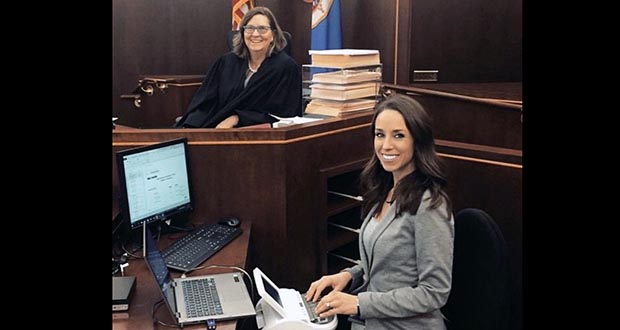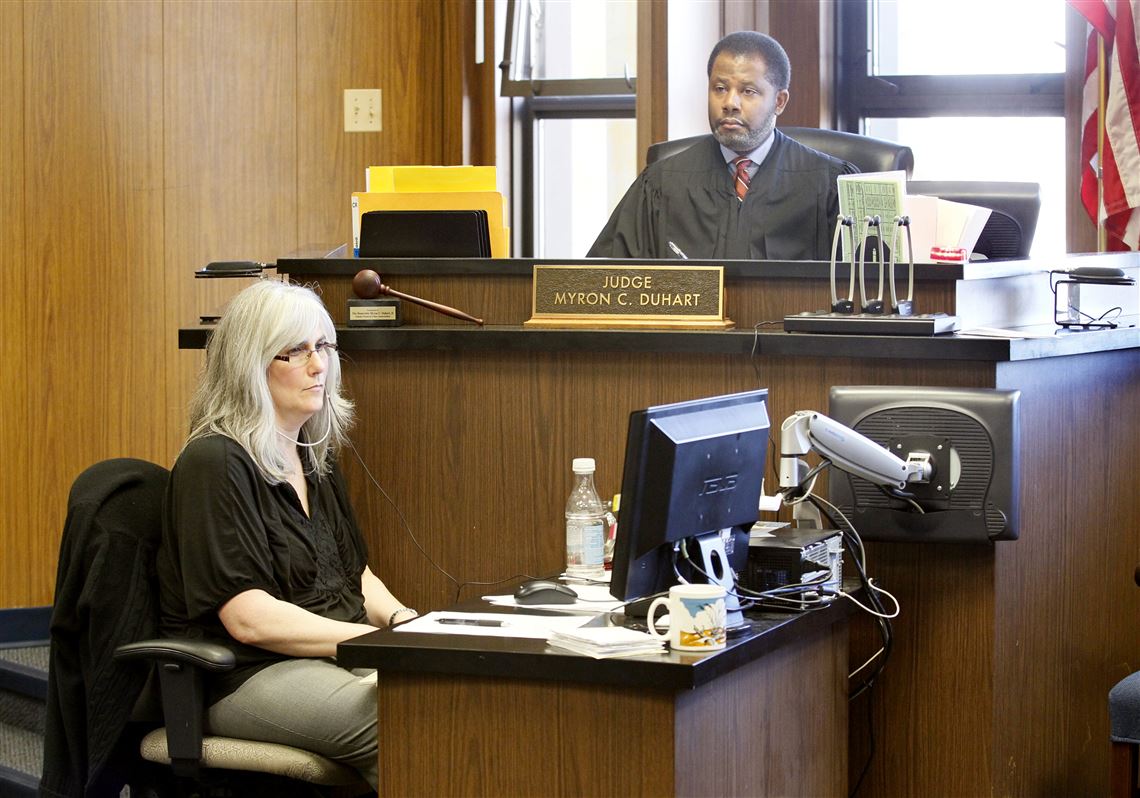Durham court reporting best practices for maintaining confidentiality
Wiki Article
The Importance of Court Reporting in Ensuring Accurate Legal Proceedings
Court reporting is an essential component of the legal system. It provides a objective and exact document of court activities. This documentation is essential for allures and lawful research study, making sure that every spoken word is captured accurately. The honesty of lawful proceedings counts greatly on these transcripts. Nonetheless, the role of technology and progressing practices elevates questions about the future of court reporting and its influence on justice. What changes exist ahead?The Duty of Court Reporters in the Legal System
Court press reporters play a vital role in the lawful system by supplying accurate and neutral transcripts of proceedings. Their work guarantees that court discussions, witness statements, and lawful arguments are consistently documented, offering as an official document for future recommendation. This documents is vital for appeals, legal study, and preserving the honesty of judicial processes. Stenotype reporter are trained experts skilled in stenography and different recording innovations, allowing them to capture spoken words with accuracy. They must have an extensive understanding of lawful terminology and court methods, guaranteeing that their transcripts satisfy the standards needed by the judicial system. In addition, they might provide real-time transcription services, enabling judges and lawyers to gain access to details instantaneously during procedures. By meeting these responsibilities, stenotype reporter assist in openness, liability, and the fair administration of justice, thus strengthening the fundamental concepts of the lawful system.Ensuring Accuracy in Transcription
Accuracy in transcription is critical for preserving the stability of lawful procedures. Stenotype reporter carefully catch every word talked during depositions, trials, and hearings, guaranteeing that the authorities document mirrors the real discussion and exchanges that take place. This accuracy is essential, as also minor errors can result in considerable misunderstandings or misconceptions of the legislation.To accomplish this degree of precision, court press reporters use different methods, including active listening and the usage of specialized shorthand approaches. Continual training and knowledge with lawful terminology also enhance their capacity to generate trusted records.
The confirmation process is important; press reporters commonly evaluate their records for prospective inconsistencies prior to last submission. This persistance not just supports the top quality of lawful paperwork however also sustains the judicial process, permitting lawyers and judges to reference specific records when making decisions. Eventually, accurate transcription cultivates count on the lawful system and assurances that justice is offered.
The Impact of Modern Technology on Court Reporting
As innovation proceeds to progress, its influence on court reporting has actually become progressively significant. Digital taping systems and speech acknowledgment software application have actually transformed typical methods, supplying new tools for recording spoken dialogue. These innovations enhance performance and availability, allowing quicker transcription and real-time reporting. Additionally, cloud-based platforms assist in smooth sharing of transcripts, improving cooperation amongst lawyers.
Ultimately, while innovation enhances the speed and availability of court reporting, it emphasizes the need for address human oversight to maintain the quality and precision important for legal proceedings. As the field continues to adapt, the combination of innovation will certainly play an essential function fit the future of court reporting.

The Relevance of Confidentiality and Stability
Privacy and stability are essential principles that underpin the method of court reporting in legal proceedings (durham court reporting). Court reporters are delegated with sensitive details, requiring them to preserve discernment and secure the privacy of all celebrations entailed. This confidentiality promotes a trusting environment where plaintiffs and witnesses can speak freely, guaranteeing that the lawful process is reasonable and simplyIntegrity is just as vital; court press reporters have to give objective and accurate records, functioning as the authorities document of the procedures. Any gap in stability can result in misconceptions, potentially impacting case outcomes and threatening the judicial system.
Future Patterns in Court Reporting
The landscape of court reporting is evolving in feedback to technical advancements and the transforming requirements of the legal career. Emerging fads consist of the combination of expert system and real-time transcription solutions, which enhance efficiency and precision. Court press reporters are significantly utilizing electronic tools, such as cloud-based systems, permitting seamless collaboration amongst legal groups and much easier accessibility to transcripts.In addition, the here are the findings increase of remote court process has motivated the development of specialized training for press reporters in virtual atmospheres. This change not just adapts to the needs of a globalized lawful landscape but additionally addresses challenges presented by geographical obstacles.
Furthermore, the focus on see it here access is driving developments in transcription layouts, guaranteeing that lawful documents accommodate varied target markets. On the whole, the future of court reporting is characterized by a blend of conventional abilities and contemporary innovation, placing press reporters as vital players in the legal process.
Frequently Asked Concerns
What Certifications Are Required to Come To Be a Stenotype Reporter?
To become a court reporter, people generally need a senior high school diploma, specialized training in court reporting, efficiency in shorthand or voice writing, and qualification or licensing, relying on the territory and details work needs. - durham court reportingHow Do Court Reporters Maintain Their Abilities In Time?
Court press reporters keep their skills in time with continuous education and learning, technique, and involvement with professional companies. They frequently participate in workshops, utilize advanced innovation, and take part in qualification programs to improve their proficiency and adjust to developing requirements.What Challenges Do Court Reporters Face in Their Career?
Stenotype reporter run into many challenges, consisting of managing high-pressure settings, adjusting to varied accents and languages, keeping technological efficiency, making certain precision under limited due dates, and dealing with mentally billed statements that might influence emphasis and efficiency.
Are Court Reporters Involved in Various Other Lawful Settings Besides Court Rooms?
Court reporters are indeed included in various legal settings beyond courts, consisting of depositions, mediation hearings, and management process. Their competence guarantees precise records in these atmospheres, adding to the clearness and reliability of legal documentation.Just How Do Stenotype Reporter Take Care Of Stressful Situations During Procedures?

Stenotype reporter take care of demanding situations by maintaining focus, employing reliable time management abilities, and using their training to remain calm. They commonly practice deep breathing and use approaches to minimize interruptions, ensuring precise paperwork under stress.
Court reporting is a vital part of the lawful system. Court reporters play a necessary role in the lawful system by providing objective and precise transcripts of process. Eventually, while technology enhances the rate and ease of access of court reporting, it emphasizes the need for human oversight to maintain the quality and precision vital for legal procedures. Discretion and integrity are basic principles that underpin the technique of court reporting in legal process. Court reporters are without a doubt entailed in different legal settings past court rooms, consisting of depositions, mediation hearings, and administrative process.
Report this wiki page